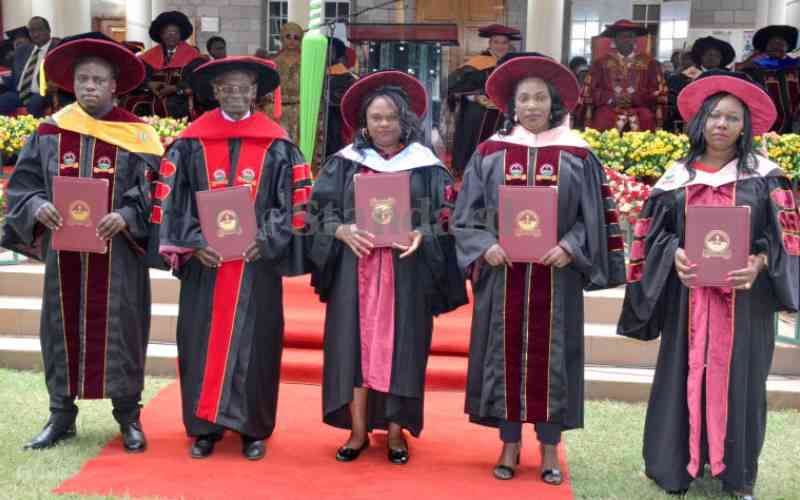×
The Standard e-Paper
Stay Informed, Even Offline

Several innovations are set to revolutionise different sectors as students in higher learning institutions set the bar high with ground-breaking ideas.
Such innovations targeted at revolutionising service delivery across different sectors while solving current challenges were the highlights during the 19th graduation ceremony at Kabarak University.